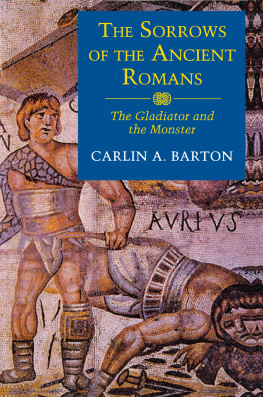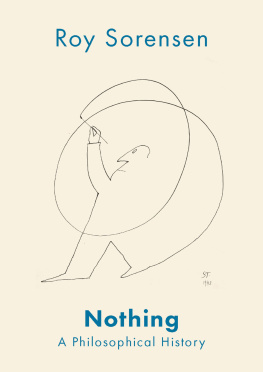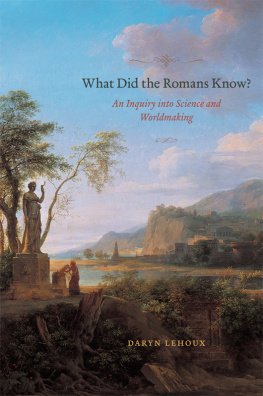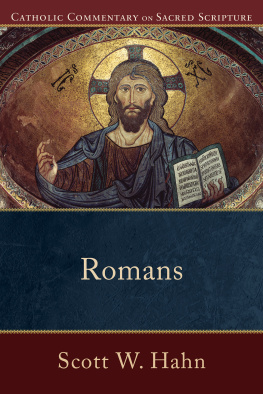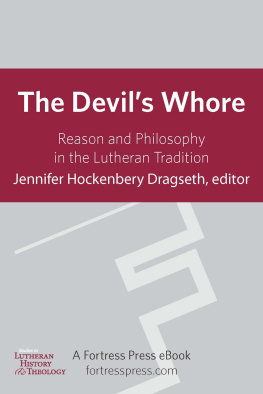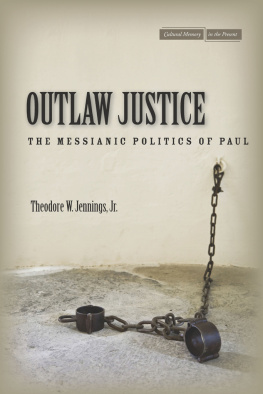Simon Dürr - Paul on the Human Vocation: Reason Language in Romans and Ancient Philosophical Tradition
Here you can read online Simon Dürr - Paul on the Human Vocation: Reason Language in Romans and Ancient Philosophical Tradition full text of the book (entire story) in english for free. Download pdf and epub, get meaning, cover and reviews about this ebook. year: 2021, publisher: De Gruyter, genre: Religion. Description of the work, (preface) as well as reviews are available. Best literature library LitArk.com created for fans of good reading and offers a wide selection of genres:
Romance novel
Science fiction
Adventure
Detective
Science
History
Home and family
Prose
Art
Politics
Computer
Non-fiction
Religion
Business
Children
Humor
Choose a favorite category and find really read worthwhile books. Enjoy immersion in the world of imagination, feel the emotions of the characters or learn something new for yourself, make an fascinating discovery.

Paul on the Human Vocation: Reason Language in Romans and Ancient Philosophical Tradition: summary, description and annotation
We offer to read an annotation, description, summary or preface (depends on what the author of the book "Paul on the Human Vocation: Reason Language in Romans and Ancient Philosophical Tradition" wrote himself). If you haven't found the necessary information about the book — write in the comments, we will try to find it.
Simon Dürr: author's other books
Who wrote Paul on the Human Vocation: Reason Language in Romans and Ancient Philosophical Tradition? Find out the surname, the name of the author of the book and a list of all author's works by series.
Paul on the Human Vocation: Reason Language in Romans and Ancient Philosophical Tradition — read online for free the complete book (whole text) full work
Below is the text of the book, divided by pages. System saving the place of the last page read, allows you to conveniently read the book "Paul on the Human Vocation: Reason Language in Romans and Ancient Philosophical Tradition" online for free, without having to search again every time where you left off. Put a bookmark, and you can go to the page where you finished reading at any time.
Font size:
Interval:
Bookmark:
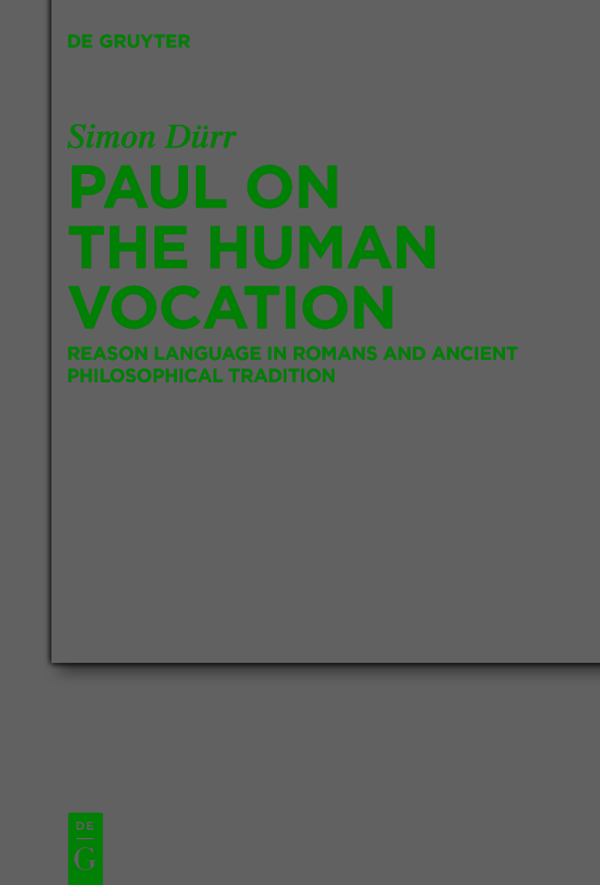
Beihefte zur Zeitschrift fr die neutestamentliche Wissenschaft
Edited by
Volume
ISBN 9783110750539
e-ISBN (PDF) 9783110750560
e-ISBN (EPUB) 9783110750638
Bibliographic information published by the Deutsche Nationalbibliothek
The Deutsche Nationalbibliothek lists this publication in the Deutsche Nationalbibliografie; detailed bibliographic data are available on the Internet at http://dnb.dnb.de.
2021 Simon Drr, published by Walter de Gruyter GmbH, Berlin/Boston // The book is published with open access at www.degruyter.com.
This work is licensed under the Creative Commons Attribution-NonCommercial-NoDerivatives 4.0 International License.
Funded by Schweizerischer Nationalfonds (SNF)
The goal of this book is to explain Pauls surprising use of reason language in Romans 12.1 (). This word never appears in the Greek traditions of the Old Testament and the Apocrypha (the Septuagint). And yet he uses it in this important transition in the letters argument (Rom 12.12):
(1a) I invite you therefore, brothers, by the mercies of God,
(1b) to present your bodies as a living sacrifice, holy and acceptable to God,
(1c) which is your reason-related () service-to-God ().
(2a) Do not be conformed to this world,
(2b) but be transformed by the renewing of your mind,
(2c) so that you may discern what it is God wants
(2d) the good and acceptable and complete.
Modern readers may find Pauls use of reason language surprising because it is taken for granted that Paul writes about religion and that religion and reason are somewhat antithetical. For an explanation of Pauls use, however, the relevant question is how the ancients used reason language and what they thought such language might imply. Hence, this book is going to explore central strands from the broad philosophical and wider cultural traditions that centre on the theme of reason within ancient discourse.
Interpreters of Paul have adduced many parallels that use the word in attempts to explain Pauls language here by a reconstruction of some traditionsgeschichtlich background. But some of these reconstructions have too readily assumed that the relevant texts belong to certain already fixed categories (religion, ethics, etc.). We propose here a fresh reading of some of these texts in terms of different categories. These emerge from our reading of the wider tradition and are needed for an explanation of what Paul is doing in Rom 12.12.
Among these parallels, there is a famous passage by the philosopher Epictetus, Discourse 1.16.2021, which has often been cited but without appreciating its full force because it has never before been fully explored in its own right with a view to explaining Pauls language in Rom 12.1. This study provides an in-depth reading of Epictetus 1.16 in its own context and suggests that this text may offer the best parallel for understanding what Paul is doing in Rom 12.1.
In order properly to appreciate Epictetus 1.16 as a parallel, such a reading needs to look at the role of the section cited by the interpreters (1.16.20) in the light of the entire Discourse (1.16 as a whole). Furthermore, it needs to contextualise the parallel on the map of ancient philosophy and within its broader cultural setting. Our reading shows that the broader rubric to which it belongs is ancient discourse on what it means to be human and more specifically discourse about the role of human beings within the cosmos.
This identification rests on three characteristics of such discourse. First, the human endowment with reason and speech (the two go closely together for ancient views) is taken to be one of the most prominent characterisations of what makes humans human, of that which is peculiar to human beings (at least in the earthly sphere). Second, this view is given expression in the definition of human beings as mortal rational animals ( ). And third, it is assumed that looking at a things peculiarity, and especially that of which something is uniquely capable, provides a reliable guide to determine its function, end, and purpose. In this way speaking about human beings as those endowed with reason can function, within the ancient cultural encyclopedia, as a way of claiming that this or that way of living is that to which humans are meant to aspire.
At this point there are profound intellectual and cultural differences between the ancient views on humans and their role in the wider world and those prevalent in the modern West. For the purpose of a historical exegesis of Pauls reason language it is important to be aware of them. The ancient conception of human reason is that which allows us to be in touch with the world. The world, then, is understood as a place of meaning with which human beings need to be in touch in order to realise their purpose. This implies the need for a method that looks at broader contexts than the usual traditionsgeschichtlich approaches.
Looking at the relevant parallel texts and especially at the work of Epictetus suggests explaining Pauls use of reason language in Rom 12.1 as an allusion to the definition of human beings as animals endowed with reason. This understanding is prominent in ancient philosophical as well as broader cultural discussions. The definition of human beings in terms of rationality condenses central themes of ancient anthropology and needs to be understood within the horizon of the ancient cultural encyclopedia. Within this horizon, it is natural to assume what might seem strange to many today, namely that human beings have a purpose and function within the cosmos, understood as a larger and ordered whole, and that this function has to do with their unique position in the order of things. Humanitys position in the cosmos is based upon their endowment with reason. We argue that Paul is aware of these traditions and expects his readers to understand him as making a point about the endowment with reason as the human proprium in Rom 12.1.
Broadly, the argument is as follows: human beings are understood in many Greco-Roman contexts as having a role in the wider cosmos and that role is based on their place and their unique capacity. This capacity is founded upon the human endowment with reason which enables humans to fulfil their purpose if they use reason rightly. Among those texts which discuss what it means to be human and share the idea that human beings have a purpose in the cosmos one will find different conceptions of what that purpose is concretely, what the cosmos is like, how it is to be understood, and what the right exercise of reason entails. Nevertheless, there is agreement on these points in general terms: that humans have a role in the cosmos, that this role is based on what is constitutive for humans and makes them distinct, and that what constitutes their distinctness, on earth, is human reason. We argue in this book that Paul too endorses these general points and that in Rom 12.1 he draws on the philosophical traditions and language relevant to discourse about such themes. Human beings have a role in the larger cosmos and their reason gives them the potential, given certain conditions, to fulfil that role.
But explaining that Paul uses reason language in Rom 12.1 in order to make a point about the human role in the cosmos in a way that is intelligible within the ancient encyclopedia does not yet provide an answer to what he thinks the role of human beings is concretely and why he would choose to talk about this in his letter to the Romans. To get at this, the textual unit Rom 12.12 needs to be understood in its place in the letter and in relation to the overall aims of the letter.
Font size:
Interval:
Bookmark:
Similar books «Paul on the Human Vocation: Reason Language in Romans and Ancient Philosophical Tradition»
Look at similar books to Paul on the Human Vocation: Reason Language in Romans and Ancient Philosophical Tradition. We have selected literature similar in name and meaning in the hope of providing readers with more options to find new, interesting, not yet read works.
Discussion, reviews of the book Paul on the Human Vocation: Reason Language in Romans and Ancient Philosophical Tradition and just readers' own opinions. Leave your comments, write what you think about the work, its meaning or the main characters. Specify what exactly you liked and what you didn't like, and why you think so.


